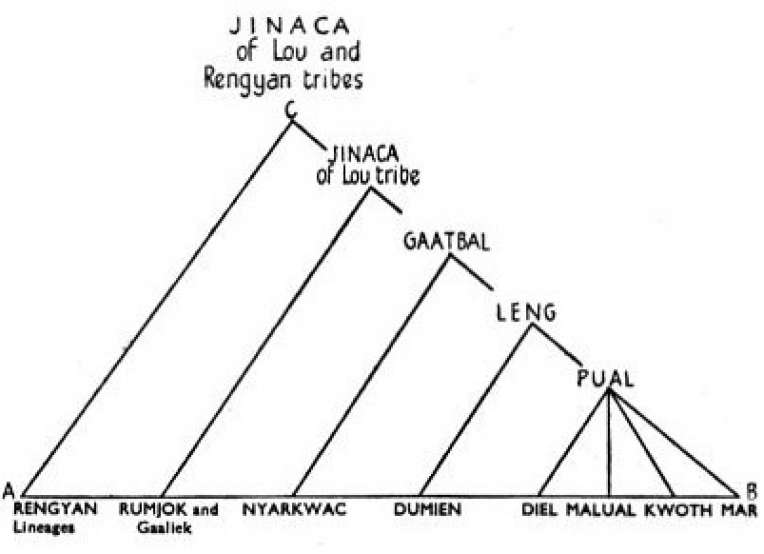This post builds on the research article “Domestic Exceptions: Evans-Pritchard and the Creation of Nuer Patrilineality and Equality,” which was published in the February 2000 issue of the Society’s peer-reviewed journal, Cultural Anthropology.
Editorial Overview
In this February 2000 article, University of Virginia anthropologist Susan McKinnon revisits The Nuer, a classic monograph published by British social anthropologist Edward Evans-Pritchard in 1940. While undeniably a classic in the field, The Nuer has met with extensive criticism. McKinnon's article examines the work of Evans-Pritchard and that of his critics to provide a nuanced challenge to the 'analytic domaining' that engenders Evans-Pritchard's ever problematic, though highly provactive, study of Nilotic kinship. McKinnon writes that her close reading of Evans-Pritchard ethnographic corpus on the Nuer (i.e., Naath) does not aim to shed light on the contemporary crises in Sudan, rather it is meant to highlight the 'situatedness and cultural specificity of the theoretical frameworks' that were in use at the time of its production. This effort enables McKinnon to demonstrate Evans-Pritchard's--following Meyer Fortes--tripartite division of social life: the domestic, the political, and the religious. Consequently, this heuristic failed to allow Evans-Pritchard to apprehend a number of important facets of Nuer social life (e.g. agnation, feuds, female linkages), yet enabled a depiction of the Nuer as egalitarian and patrilineal. Ultimately, McKinnon marshalls evidence to place the tenability of a division between the political, the domestic, and the religious into question which she understands as a form of 'analytic domaining.' Furthermore, she demonstrates how this division has engendered a legacy of scholarship in which the 'really real' and the 'ideal' of Nuer logic and practice has been bracketed in order to preserve the analysts' onto-epistemological orientations.

Editorial Footnotes
Cultural Anthropology has published an array of essays that interrogate notions of kinship. See Sherry Errington's "Incestuous Twins and the House Societies of Insular Southeast Asia" (1987), Corinne P. Hayden's "Gender, Genetics, and Generation: Reformulating Biology in Lesbian Kinship" (1995), David M. Schneider's "The Power of Culture: Notes on Some Aspects of Gay and Lesbian Kinship in America Today" (1997), and most recently, Daniel Fisher's "Mediating Kinship: Country, Family, and Radio in Northern Australia" (2009).
Cultural Anthropology has also published an expansive corpus of work on anthropological epistemologies since its inaugural issue in 1986. See Edward M. Bruner's "Anthropology and Human Studies" (1986), Paul Dresch's "Segmentation: Its Roots in Arabia and Its Flowering Elsewhere" (1988), Pierre Bourdieu's "The Scholastic Point of View" (1990), and more recently, Michael M.J. Fischer's "Four Genealogies for a Recombinant Anthropology of Science and Technology" (2007).


Key References
Dumont, Louis. 1980. Homo Hierarchicus: The Caste System and Its Implications. Chicago: University of Chicago Press.
Evans-Pritchard, E. E. 1940. The Nuer: A Description of the Modes of Livelihood and Political Institutions of a Nilotic People. Oxford: Clarendon Press.
___________. 1951 Kinship and Marriage among the Nuer. Oxford: Clarendon Press.
___________. 1956 Nuer Religion. Oxford: Clarendon Press.
Kuper, Adam. 1982. 'Lineage theory: a critical retrospect', Annual Review of Anthropology 11: 71–95.
Sahlins, Marshall D. 1961. "The Segmentary Lineages: An Organization of Predatory Expansion." American Anthropologist 63(2):322-345.
Southall, Aidan. 1986 "The Illusion of Nath Agnation." Ethnology 25(1):1-20.